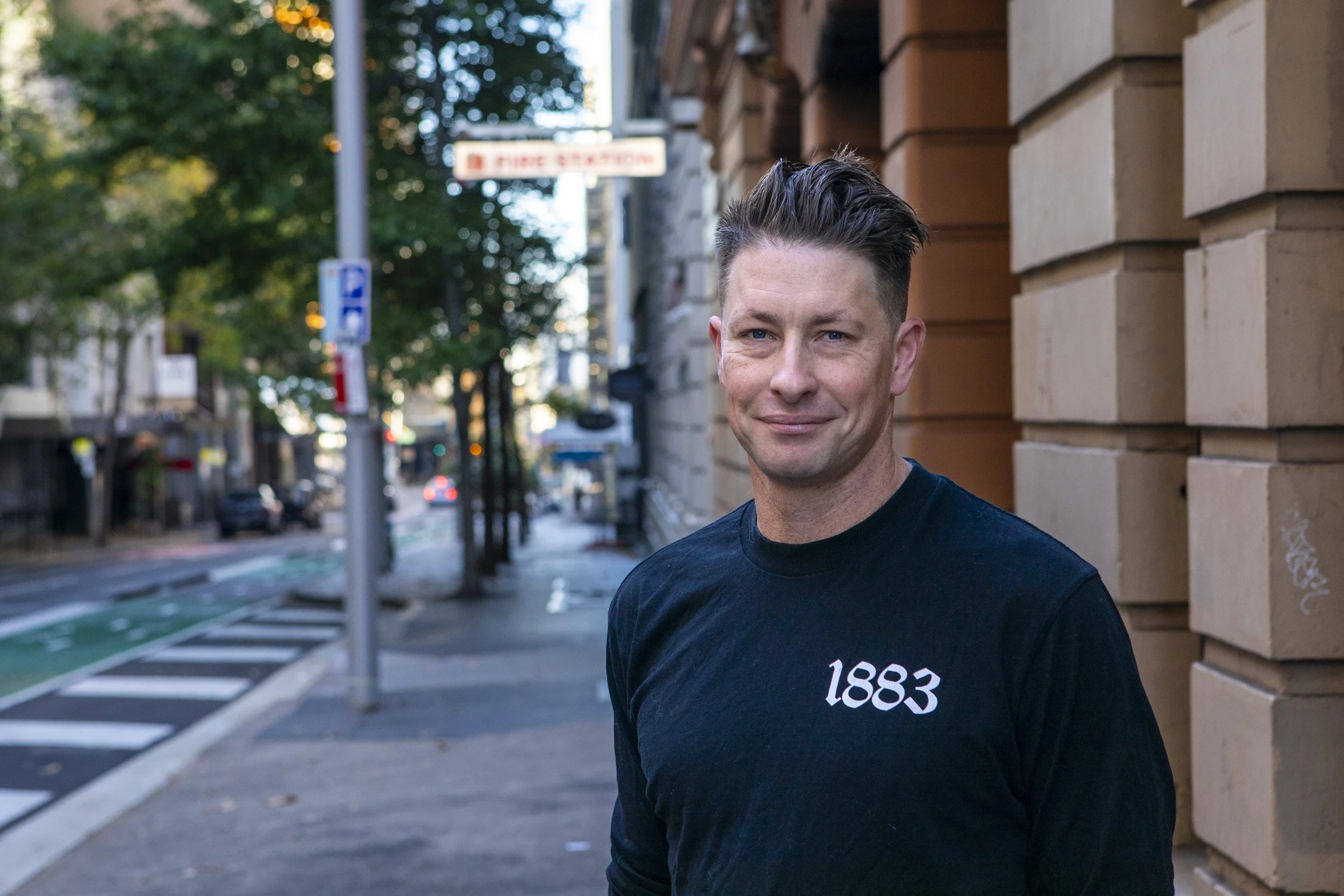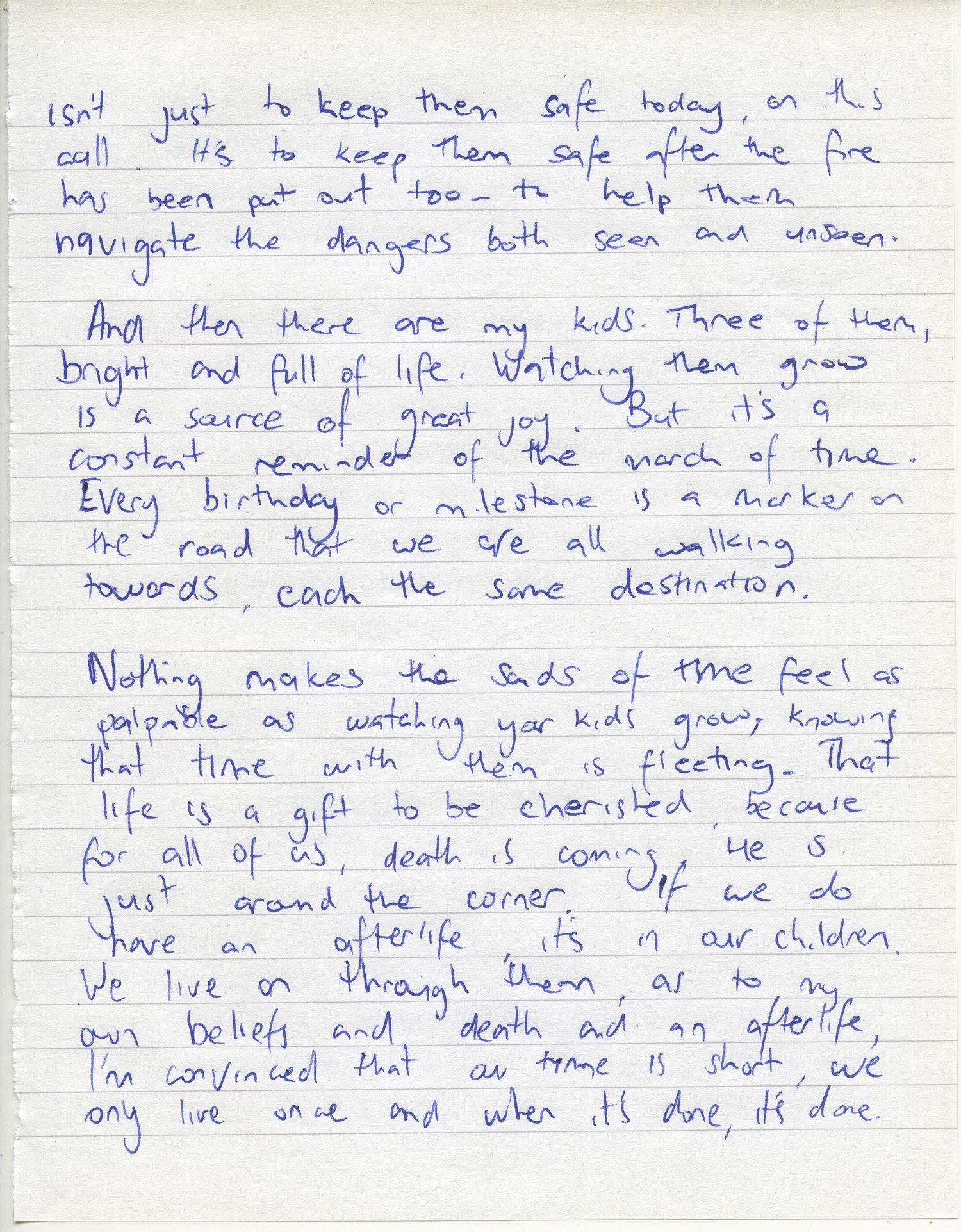James Forde | Firefighter
Death. It’s the uninvited guest at the party of life, the one nobody wants to acknowledge, let alone introduce. We push it out of our minds, just a figure lurking beyond our consciousness. We kid ourselves that somehow it will be different for me, for my loved ones, for my friends. We tell comforting stories about long and happy lives, but the reality is more brutal and complex of course.
During my professional life I have touched death on many occasions. For the past 20 odd years I have worked in the emergency services. I started as a paramedic working in the inner city of Sydney, before swapping uniforms and upgrading the truck and becoming a professional firefighter.
I currently work as a Station Officer and a primary rescue operator out of City of Sydney fire station. A rescue operator is often a frontline witness to the fragility of human existence. I have cut kids from cars, picked up climbers from the bottom of cliffs, fire bombings, suicides, house fires, bush fires, floods, storms and everything in-between.
Death has been present in the work that I do, mercifully, not every day, but often enough to remind you of the precariousness of it all.
Before joining the emergency services, I asked a friend who was already a veteran of FRNSW [Fire & Rescue NSW] how he dealt with death. His answer, simple and profound, has stayed with me ever since. He said he felt privileged. Privileged to be there at the end, to assist in his own way, the transition. To offer comfort and connection. It was an insight that shifted something in me, and I attempt to always remember it, in times of chaos and loss.
Firefighters die too. Fortunately, it’s rare for us to die in fires, although tragically that does happen from time to time. No, the real killer, the silent assassin is Cancer. We breathe in toxic fumes, often trapped in our clothes and personal protective gear—seeping into our skin and lungs.
Firefighting is considered a Group 1 carcinogen. I currently have 3 colleagues living with this insidious disease, their futures all uncertain, and another who passed away last year. Each one of these men developed cancer in a large part because of, if not wholly, from the work that they do. Their bodies betraying them years after the fires have been put out and extinguished.
I think of them when I send young firefighters into burning buildings. My responsibility as a station officer isn’t just to keep them safe today, on this call. It’s to keep them safe after the fire has been put out too—to help them navigate the dangers both seen and unseen.
And then there are my kids. Three of them, bright and full of life. Watching them grow is a source of great joy. But it’s a constant reminder of the march of time. Every birthday or milestone is a marker on the road that we are all walking towards, each the same destination.
Nothing makes the sands of time feel as palpable as watching your kids grow, knowing that time with them is fleeting. That life is a gift to be cherished, because for all of us, death is coming. He is just around the corner.
If we do have an afterlife, it's in our children. We live on through them, as to my own beliefs [about] death and an afterlife, I'm convinced that our time is short, we only live once and when it's done, it's done.
Heaven is here and now. Live, laugh, love and hopefully we live on in the memories of those left, and those memories are joyous.
—James Forde (2025)
The Death Letter Project welcomes your comments and feedback. Please feel free to leave a comment on our Facebook page or alternatively submit a message below.





